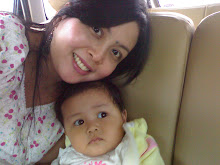| If there's one thing guaranteed to put a toddler's nose out of joint, it's the arrival on the scene of a new baby brother or sister. Just when your three-year-old has figured out his place in the world (King of the Castle, of course!), Mum disappears for a couple of days and comes back with a screaming bundle of baby. Suddenly the household routine is thrown into chaos, Mum's not available for cuddles because she's breastfeeding, Dad is running around making cups of tea for Mum, and there's an endless stream of aged aunties turning up to coo at the baby. When you look at it like that, it's understandable that older siblings frequently feel a tad put out when a new family member arrives. The trick is to try to keep your older child's egocentric "it's all about me" world view in mind when you're introducing the idea, and the reality, of a new addition. Here are a few ideas that have worked for other parents: Remember, language is a very powerful tool when managing children. From the very first time you share your pregnancy news with your big kid, it may help to refer to the baby as "your baby" or "your brother or sister" rather than "Mummy's baby". With any luck little Johnny will be flattered and delighted that you are making him a little brother or sister to play with. Some parents like to tell their older children about a pregnancy as soon as it's confirmed, but toddlers aren't known for their discretion so this can be risky if you don't want anyone else to know yet, and may also be confusing for him if you end up having a miscarriage. You may find you prefer to wait until at least the end of the first trimester. Explain that there's a baby in Mummy's tummy (he'll notice the bump for himself soon enough), but don't go on and on about it - nine months is a long time in a toddler's life, so you don't want his enthusiasm to peak too early. In the months before the birth, concentrate on fostering your child's sense of security through consistent and comforting family rituals. Shower him with love and affection, and encourage him to become closer to his other family and careers, such as his father or grandparents. Avoid making big or disturbing changes, such as moving him from a cot to the big bed, or starting toilet training, near to your due date. If you need the cot for the baby, or if you want to start your toddler at kindergarten so you can have time alone with the baby, make the changes well in advance of the birth so he's well settled before the baby comes. Try to handle the birth as smoothly as possible from the toddler's point of view. If you're going to hospital, tell him that Mum is going away for a couple of days and that he'll get to visit. If possible, turn the situation into a treat for him - an overnight stay at a friend's house or the fun of having Grandma come to stay. Conduct a few practice runs in the months before the birth so it's not too new and strange for him. Once your new baby is born, try to organize for your child's first visit to hospital to occur while the baby is asleep or in someone else's arms. Ignore the baby for the first few minutes of the visit while you lavish attention and affection on your big kid. Then introduce him to his little sister or brother. Allow him to touch, stroke and gain a sense of ownership - gently of course! Arrange for your child to be at home when you bring the new baby home. Buy an impressive gift, wrap it gorgeously and parade it into the house at the same time as the new baby, saying it's a present for him from his new brother or sister. Ask close friends to bring a token present for your older children when they come to meet the baby. There's no avoiding the fact that most mothers have their hands pretty full in the first few weeks with a new baby, but try to make time for a few special moments with your older child each day. Stick to rituals such as tucking him in at night. Acknowledge his feelings of jealousy, and reassure him you love him just as much as you did before. Show him photos of himself as a tiny baby and tell him about how you used to look after him, just like you're looking after his sister now. Point out how much he's grown and learned since then and how much he'll be able to teach the baby. Involve him in the baby's daily rituals, even giving him little tasks to do if he's willing so he feels like part of the action. Let him play with his sister (gently), and make sure you point out to him how she smiles when she sees him and watches him playing. This is also a fantastic opportunity for dads to spend some one-on-one time with their preschoolers. Get your partner to sit down with your child before the birth and write a list of fun activities they'd like to do together - then work through it in the days following the birth. |
NEW BABY IN THE HOUSE!
Labels: little treasures, mom and baby info
Subscribe to:
Post Comments (Atom)

No comments:
Post a Comment